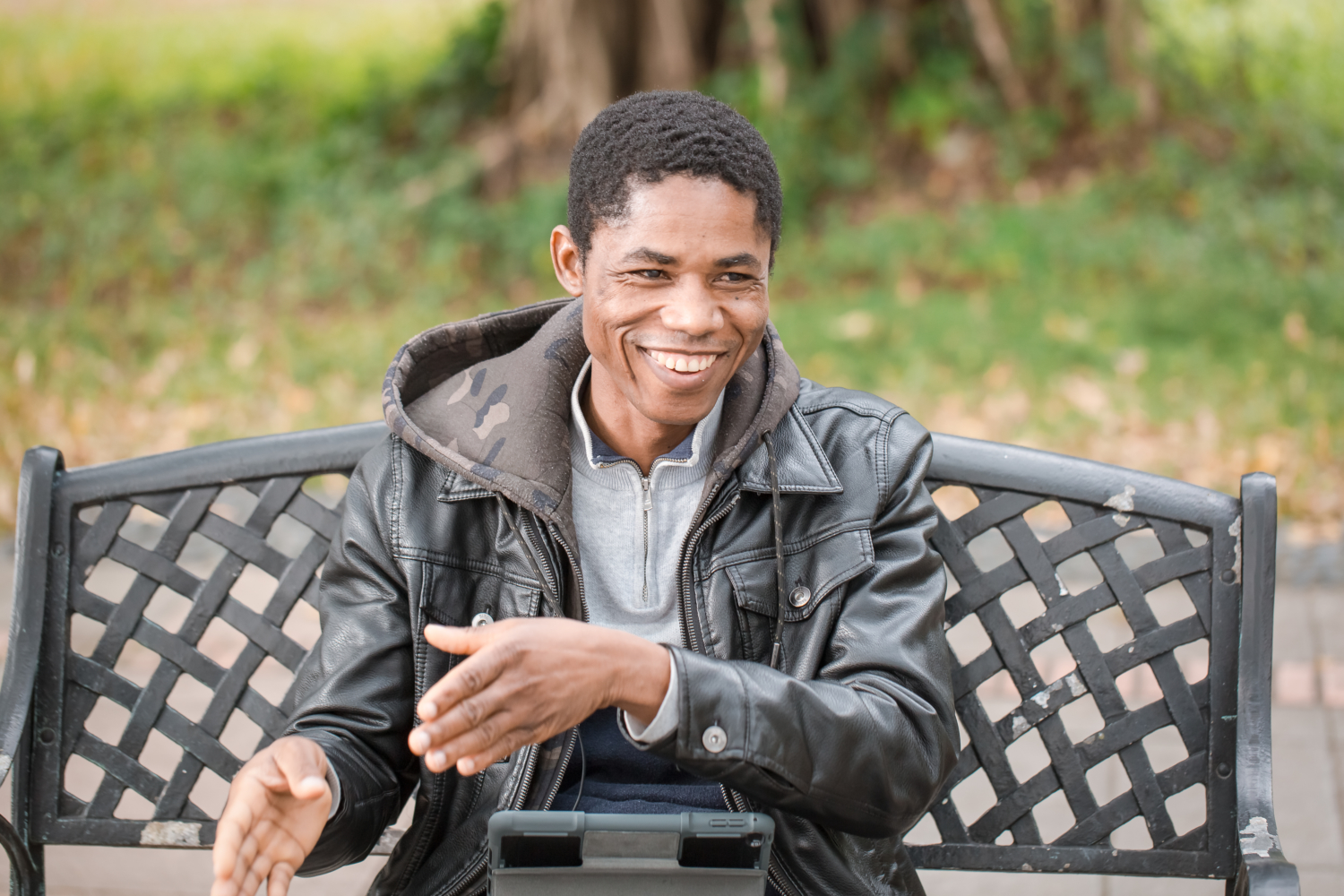Three Continents, Two PhDs, and a New Way to Heal the Brain
Source: Office of Global Engagement
Published on 2022-06-21
Ouada Nebie came to TMU from Burkina Faso, where he was trained to be a medical biologist working at the country’s National Blood Center. He had come across the work of Prof. Theirry Burnouf when browsing overseas PhD programs, and, with something of an adventurous spirit and intrigued by work of his future advisor’s research into platelets, Nebie reached out. He was eager to pursue an interest in science and looking forward to something different in culture, lifestyle, and working environment. Prof. Burnouf’s response that same day was a surprise, which began Nebie’s academic journey that crossed three continents, with two PhDs earned.
Nebie arrived in Taiwan in 2015, the new environment was “amazing” he says, totally different lifestyle from back home. It was also rushed; he had to figure out new living arrangements and study responsibilities in a short period time before embarking on an academic road less travelled: a dual PhD program between TMU and the Université de Lille in France.
Under Prof. Burnouf’s supervision, Nebie began a series of experiments to see if platelet lysate had a potential neuroprotective effect after traumatic brain injury (TBI). The three-stage process involved characterizing lysate contents, developing a cell model to assess safety and observe any changes to cell morphology caused by lysate, and confirming observations with in-vivo studies in mice.

The plan was ambitious, but what really set Nebie apart was choosing the dual-degree route. All doctoral degrees demand careful time management, but Nebie was in effect working on two PhDs at once, and meeting the requirements of two institutions and balancing two advisors (Dr. David Blum was his advisor at Lille) made for a tight time frame. This meant no vacation, but Nebie had confirmed for the first time that bioactive compounds in human-derived platelet lysate could safely improve motor function, reduce inflammation, and decrease the loss of cortical synaptic proteins. In short, he and his team had shown for the first time that platelet lysate could help heal the brain.
The advantages of a dual degree had made the challenge worthwhile. Nebie had successfully completed his program in a relatively short 3.5 years. It’s a challenge Nebie says, but besides developing exceptional self-, stress-, and time-management skills, dual degree students have a distinct advantage that comes from exposure to two pools of expertise. Each institution has a distinct academic working culture, and learning to apply the unique strengths of two labs across contexts can be a major career asset. Nebie’s own experience bears this out; by synthesizing perspectives on neuroscience at Lille and blood-related tissue engineering at TMU he discovered what may soon prove to be an invaluable treatment for traumatic brain injury and beyond.
Nebie now works as a postdoctoral researcher at the Université de Lille, where he’s expanding his work with platelet lysates to develop treatment applications for Alzheimer’s disease. Before heading back to the lab, he had a few words for prospective students: “If you’re motivated and have the opportunity, apply. Keep focused on your goals and the benefits you’ll get. Learn from both environments and the people you meet. Your mind will be opened and you’ll set yourself apart. Don’t hesitate. Try it!”

